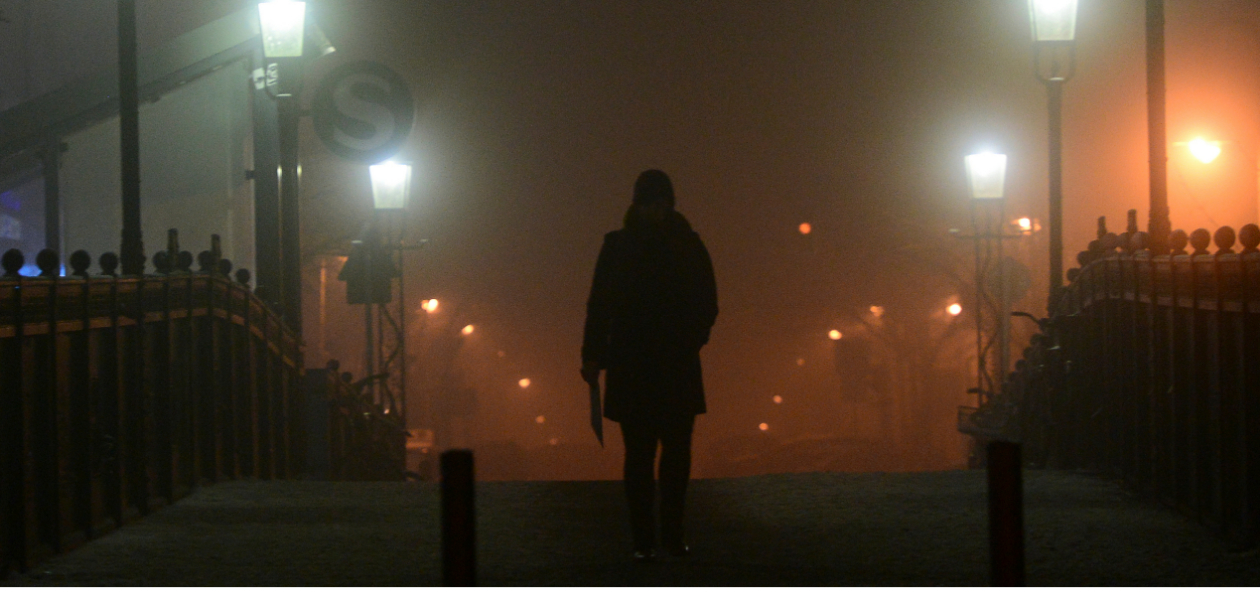
BERLIN—“It’s going to be a choice many of us will have to face when winter comes: freeze or starve.” So says Günter Pohl, a glassworker from the the town of Sprockhövel in Germany’s industrial Ruhr region. “The sanctions are supposedly targeting Russia, but they’re hitting us a lot more than they are Russia.”
He was referring to the economic penalties Western governments have imposed on Russia in response to its invasion of Ukraine. Though supposedly intended to cripple the Russian economy and pressure Vladimir Putin to bring his troops home, there are signs it’s the working people of Germany and other European countries who are bearing most of the punishment.
Pohl spoke with People’s World in Berlin on the sidelines of the UZ-Pressefest, a mass cultural and political festival hosted annually by Unsere Zeit, a socialist newspaper affiliated with the German Communist Party (DKP). His sentiment is shared by many here—understandable given that paychecks are covering less and less these days.

Inflation clocked in at 7.6% for Germany in summer 2022, a near 40-year high. At the core of the problem? Energy costs, which are up an astounding 38% according to official statistics. Before the war in Ukraine, Germany secured the natural gas that heats its homes and powers much of its industry from Russia. It had been that way for decades, even during the Cold War.
But in the wake of Putin’s invasion, construction on the nearly-finished $9.5 billion Nord Stream 2 pipeline—which would have transported more gas from Russia to the German coast by going under the Baltic Sea—was abruptly canceled. Gas flows through the existing Nord Stream 1 pipeline to Europe have already slowed by more than 60% and will go to zero by the end of August, at least for a while.
That shutdown presents a special problem for Germans. More than half of them—over 40 million people—use natural gas to heat their homes. During the summer, many still hoped the worst of the gas price hike might be avoided. Perhaps Ukraine and Russia would negotiate a ceasefire and the pressure on world energy markets would ease.
But now, fall can already be felt in the air in Berlin, and the prices of everything from food to transport to fuel continue to climb. Many are beginning to worry about what will happen when the temperatures really begin to drop.
“We expect prices to double,” Pohl predicts. “And no one will be spared…it’s not just the heating of homes, it’s also the cooking, the hot water for bathing…all of it.” Making the stained glass windows which are his specialty also consumes a lot of energy, so the same problem is repeating in manufacturing and throughout the economy.
Even those Germans who use electricity or oil for their homes won’t be able to avoid the rising costs. “A lot of people don’t earn enough money to do it,” he argues. “It’s going to be at least €2,000 more [$2,000 USD] for a family of four this winter. How will they pay?”
Where’s the resistance?
Wera Richter shares Pohl’s skepticism for the cold season ahead. “With prices shooting up, even people who have what are considered ‘decent’ incomes are going to have difficulty paying and surviving.” Richter is the editor-in-chief of Unsere Zeit and covers the latest developments of the war and its economic fallout for Germans in the pages of the newspaper.
She says the DKP and UZ were warning earlier this year of what lay ahead for working-class Germans if a reckless sanctions regime was the West’s response to the war. The continued flow of Russian gas at the tail-end of last winter and the warm weather of summer kept public discontent in check for a time, but when the choice becomes food or heat, will public opinion begin to change?
Richter’s chief concern is that there has so far been “nearly a total lack of resistance” to the ill-conceived structure of the sanctions against Russia. The peace movement is weak, and images of the brutality of the war in Ukraine along with German leaders’ declarations of solidarity with Volodymyr Zelensky’s government have kept most people on side with the NATO campaign to back Kiev to the bitter end.

In the eastern part of Germany, the areas which made up the former German Democratic Republic, anti-war feelings are stronger, according to Richter. But the call for a negotiated ceasefire, which the DKP and UZ advocate (vs. an all-out military defeat of Russia which NATO says is the goal), is still a tough sell almost anywhere right now, Richter admits.
Heavily discounted public transport tickets and some small energy subsidies for households bought the government time in the spring and summer. It says the long-term strategy is to totally phase out Russian gas and switch to other sources.
It is the trade union leadership’s inaction on the energy inflation issue that is particularly worrying for Richter, though. “They haven’t organized anything,” she laments. Even if they remain bound to the government’s foreign policy stances, at least they should have something stronger to say about the war’s effect on their own members.
Melina Deymann, who works alongside Richter at UZ as the paper’s international affairs editor, told People’s World that the positions taken by some unions amount to almost a total neglect of duty to their members’ well-being. She cited one large service union whose leader last week told members it’s no time to fight with the government or employers “because the evil Russians are threatening the world, together with the even more evil Chinese standing behind them.”
Deymann says, “Under no circumstances would a Communist tell a worker to leave a union, but that kind of situation brings you pretty close to considering it.”
Sanctions war winners
Eagerly waiting to step into the energy void left by the sanctions, of course, are U.S.-based corporations looking for new customers. Before the scuttling of Nord Stream 2, their share of the European gas market topped out at around 30%. But Russia’s war changed everything—essentially overnight. Soaring prices made expensive-to-produce gas from the U.S. more competitive on world markets, and European leaders could rely on sentiment for Ukraine among the general public to accelerate the turn away from Russia.

“Now they say we will buy fracked gas from the U.S.—ecologically the worst kind—but there’s not even enough ships and terminals to get it here,” Pohl says. American natural gas largely comes from the environmentally-damaging process of fracking, and getting it across the Atlantic requires liquefaction, huge tanker ships for transport, and specialized loading and offloading facilities.
“Maybe you can assemble a terminal pretty quickly,” Pohl grants, “but the number of ships they will need could take years to build.” So although U.S. gas is on the way, it could be a long time coming.
In the meantime, keeping up the economic charade of anti-Russia sanctions is leading to some pretty absurd tactics.
“The German government says we will not buy Russian gas because they are killing Ukrainians and conducting an illegal war, so instead we’ll buy gas and oil from Qatar and Saudi Arabia,” Pohl explains. But Qatar and Saudi Arabia (which is doing plenty of killing of its own in Yemen) can’t supply enough output to fulfill Europe’s needs. “So where do they get it? Russia! Russian oil and gas goes to places like Saudi Arabia, which then turns around and sells it to Germany.”
In this middle-man mark-up system, Germany still ends up buying the same Russian energy supplies it has sanctioned and forbidden—but at higher prices. “It would be funny if it wasn’t all so tragic,” Pohl muses.
In Russia, the oil is still flowing, but now more of it is heading east to customers like India and China. In fact, Russia is selling more oil than ever, and revenues are through the roof. The whole sanctions regime is boomeranging back on Europe; it’s estimated Germans will be paying over €5 billion [$5 billion USD] more for energy.
“Asia has saved Russian crude production,” said Viktor Katona, an energy analyst at the firm Kpler, told the New York Times last month. “Russia, instead of falling further, is almost close to its pre-pandemic levels.”
The biggest beneficiary in the whole affair, Pohl argues, has been U.S. imperialism. Its energy companies are breaking into the European market, and the costs of achieving its long-term goal of weakening Russia are being paid for, in part, with West European workers’ earnings and Ukrainian lives. “The winner of this war and sanctions will be the United States.”

Sanctions war losers
The whole sanctions regime seems to be a failure. The economic impact on Russia isn’t working out as planned, the war drags on with neither side willing to negotiate, and Germans’ euros are shrinking fast.
As for the climate? It’s another casualty of the war: Fracked U.S. gas is pouring onto the world market, more coal and other dirty fossil fuels will be consumed to make up for the lost energy, and Russia is burning off much of its unsold excess gas.
How long this state of affairs can go on is an open question. Will the labor movement leadership continue to sleep at the wheel while the economy heads for the ditch? Will the public’s willingness to pay for the costs of war hold out when the mercury drops? Will Russia and Ukraine work out some kind of peace?
Another determining factor will be the issue of how long the unity of the German ruling class holds up. Pohl says that it has long been split between two wings, “one Atlanticist, which was essentially pro-U.S.,” and a second one which was “neither pro-U.S. nor pro-Soviet (pro-Russia in the post-Cold War days).” The latter wing believed it was good for business to maintain connections to both sides and not get overly attached to American foreign policy dictates.
Since the invasion though, that “collaboration wing,” as Pohl calls it, has gotten weaker. “As of February, the capitalist class has collectively said, the government will determine where we go—it’s the primacy of politics.” Advocating business ties with Russia has simply become untenable, so the search is on for new partners in other places.
This old split in the ruling class had actually played a role in preserving peace, but with the state having declared it intends to be totally free of economic activity with Russia by 2023, Pohl and the German Communists worry about what could come next.
“It’s always been said that countries which trade together don’t go to war, but by 2024 there will be no trade with Russia,” Pohl says. “What then?”
That’s why the DKP and UZ have made peace the central focus of the UZ-Pressefest this year. The German Communists know it’s an uphill fight right now to stop the war—both the war in Ukraine and the war on German workers’ living standards—but they’re giving it all they have to mobilize peace sentiment.
There is little time to spare, however. Winter is coming and it’s coming fast.












Comments